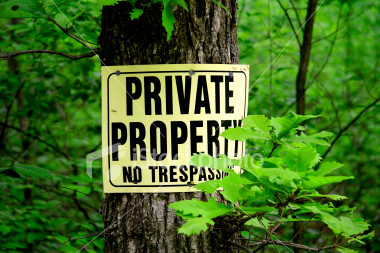The Outdoor Heritage Fund Is A Threat To Property Rights

In the first half of the legislative session the North Dakota House passed a bill, HB1278, to create the Outdoor Heritage Fund. The idea came from a ballot measure that was derailed by petition fraud last summer. It would create a panel of special interest groups that would decide how to spend $30 million in oil tax revenues per biennium on conservation projects.
Democrats have introduced a constitutional amendment just days ago, SCR4027, that more closely mirrors the ballot measure from last year, allowing up to $100 million for the fund.
The Grand Forks Herald calls the board that would be created to oversee the fund a conglomeration of “conservationist Hatfields and property-rights McCoys.” That’s probably a fair description, but for the life of me I can’t figure out why the legislature would want to outsource the conservation debate to a group of lobbyists and political activists who have no accountability to the voters.
That sounds like an abdication of the legislature’s policy-making and appropriation responsibilities. After all, why do only certain groups get a say in how the money is spent? What if new groups with interests in energy or conservation or property rights are created? What if we don’t need $30 million per year spent on conservation?
But beyond those problems, the potential for mission creep here is enormous. One of the primary selling points for this legislation is that the funds couldn’t be used to buy up land. This was a concession property rights proponents such as the North Dakota Farm Bureau and the Stockmen’s Association were interested in. Already, though, before the legislation has even become law the Herald is dreaming of ways to skirt that prohibition on buying up property:
State law restricts the Nature Conservancy and similar nonprofits from buying land. But matching grants tied to the Outdoor Heritage Fund would get around that restriction. This would enable the nonprofits as well as conservation-minded residents to donate. Philanthropic oil millionaires would find an outlet for their money, too. Many of them are looking for good ways to “give back” to the state.
Not only is the Outdoor Heritage Fund a totally inappropriate sop to special interest groups, enshrining their political cause and activism in an official state board, but we can see already how it will evolve into an instrument through which North Dakotans are denied the use of land for outdoor sports, energy development, ranching, agriculture, etc.
This is a bad idea. This is a can of worms the legislature shouldn’t open. This won’t end well for the proponents of fiscal responsibility and property rights.







